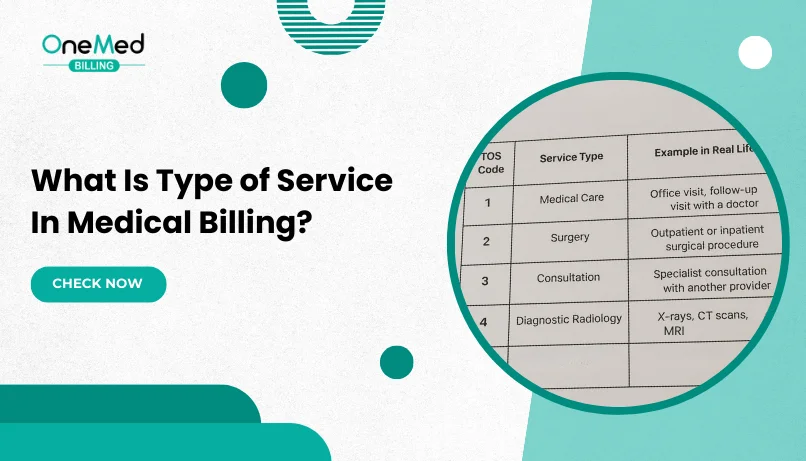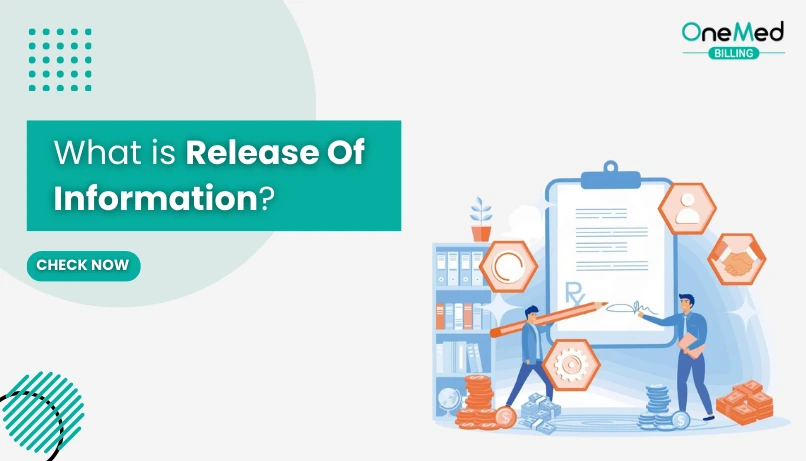What is ROI in Medical Billing? - Meaning and its Importance
- Updated Date Sep 26, 2025
- Medical Billing
- Follow
In the world of healthcare, ROI doesn’t mean “Return on Investment” like it does in finance. Here, it stands for Release of Information, the process of sharing a patient’s medical records or health information with an authorized person or organization.
This can include things like sending a patient’s chart to another doctor, providing records to an insurance company for a claim, or giving medical history to an attorney handling a legal case.
What is the purpose of Release of information?
The purpose of Release of Information (ROI) is to share a patient’s medical records securely, accurately, and only with authorized parties. It ensures sensitive health information is protected under HIPAA, supports timely and informed patient care, helps insurance companies process claims, and meets legal requirements for record disclosure. A well-managed ROI process keeps the right information flowing where it’s needed while safeguarding patient privacy.
Step-by-Step Process for Releasing Medical Information (ROI)
The Release of Information (ROI) process ensures patient records are shared securely, accurately, and only with authorized parties, following HIPAA guidelines.
- Receive the request for patient records from an authorized party.
- Confirm the request is complete and includes necessary details like patient name, date of birth, and specific records needed.
- Verify the identity of the requester and check for legal authorization or patient consent.
- Review the patient’s file and select only the records allowed to be released under HIPAA guidelines.
- Remove or redact any information that is not authorized for disclosure.
- Prepare the approved records in the requested format (electronic, printed, faxed).
- Send the information through a secure, HIPAA-compliant delivery method.
- Document the release in an ROI log, including who received it, what was sent, and the date of release.
- Store a copy of the released records and the authorization for future reference or audits.
How Release of Information Helps Patients

The Release of Information (ROI) process benefits patients in several important ways.
- Faster access to care without treatment delays.
- Better treatment decisions through complete health records.
- Smooth transitions between doctors or specialists.
- Quicker insurance claims and authorization approvals.
- Strong protection of personal health information.
Common ROI Mistakes That Can Lead to HIPAA Violations
Mistakes in the Release of Information process can put patient privacy at risk and result in HIPAA violations. Here’s what to watch out for.
Releasing Without Permission
Sometimes records are sent out without the patient’s signed consent or legal authorization. This is one of the biggest HIPAA risks. Always confirm you have the correct forms or legal documents before releasing any information.
Sending Too Much Information
Even if a request is valid, you should only share the specific details asked for. Adding unrelated medical history or extra documents, even by mistake, can violate HIPAA’s “minimum necessary” rule.
Mixing Up Patient Records
If names, dates of birth, or record numbers are not double-checked, it’s easy to send the wrong patient’s file. This kind of error can cause serious privacy breaches and erode patient trust.
Using Unsafe Delivery Methods
Sending records through regular email, unsecured fax lines, or unprotected mail puts sensitive data at risk. HIPAA requires secure ways to send information, such as encrypted email or secure portals.
Not Keeping a Record of the Release
If you don’t document the details of every release, who requested it, what was sent, and when, you won’t have a clear audit trail. This can be a problem if questions or disputes arise later.
Untrained Staff Handling Requests
When staff members aren’t trained on HIPAA rules or the ROI process, they may skip important steps or use outdated procedures. Regular training helps ensure everyone knows the correct process.
Why Speed and Accuracy Matter in ROI Requests

Handling ROI requests quickly and accurately is mandatory as it directly affects patient care, billing, and legal compliance. When records are delayed, patients may have to wait longer for diagnoses or treatments because their new doctor doesn’t have their medical history in time. This can slow recovery or worsen a condition. In billing, slow ROI responses can stall insurance claim reviews, leading to delayed payments and cash flow problems for the practice.
Accuracy matters just as much as speed; sending incomplete or incorrect records can cause claim denials, billing disputes, or confusion during treatment, especially when a patient moves between providers. In some cases, errors in the released information can even lead to harmful medical decisions. By ensuring ROI requests are handled promptly and without mistakes, healthcare providers protect patient safety, keep revenue moving, and stay compliant with HIPAA regulations.
Conclusion
Release of Information is a critical link between patient care, billing, and compliance. When done right, it ensures sensitive records are shared only with authorized parties, claims are processed without delays, and care decisions are made with complete and accurate information.
Frequently Asked Questions
Find quick answers to common questions about this topic, explained simply and clearly.
Who can request medical records through ROI?
Patients, their legal representatives, authorized healthcare providers, insurance companies, or other parties with proper legal or written authorization.
How long does it take to process an ROI request?
Typically, 5-10 business days, though timeframes can vary based on state laws and record complexity.
Can medical records be released without patient consent?
Yes, but only in specific cases allowed by law, such as public health reporting, court orders, or emergencies.
What is an ROI letter?
A formal document requesting the release of a patient’s medical records, usually including patient details, specific records needed, and proof of authorization.






